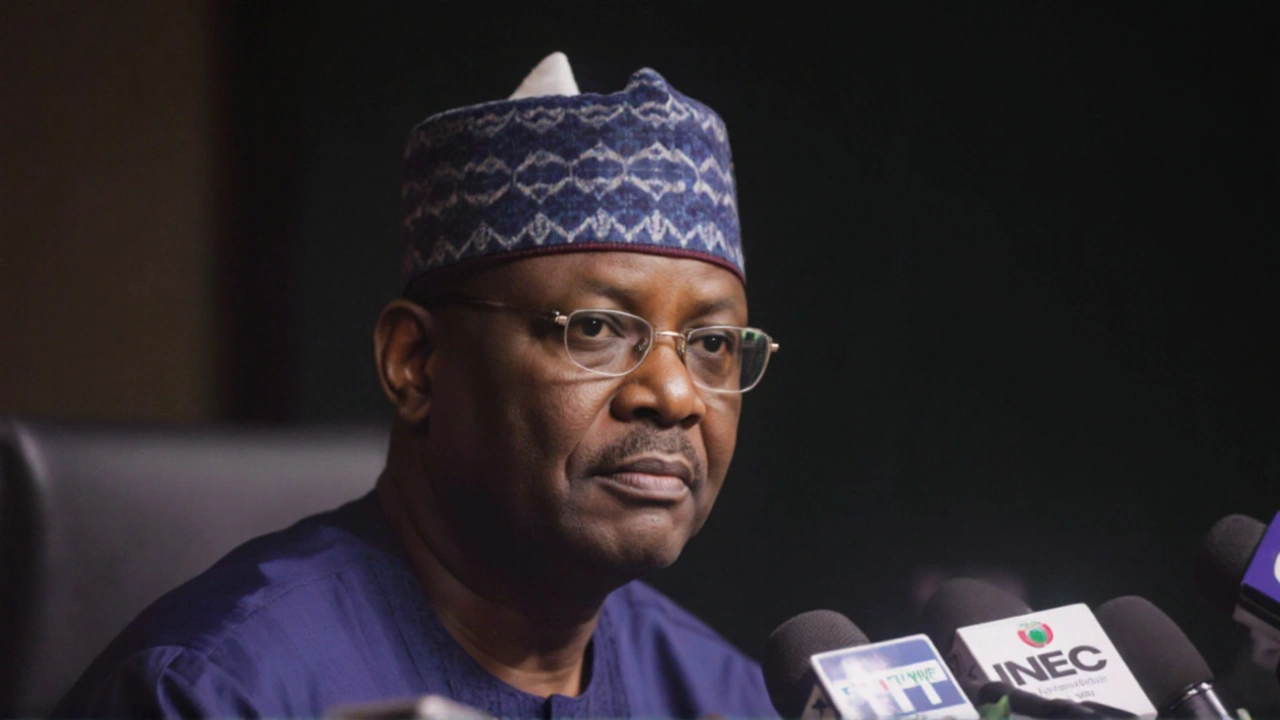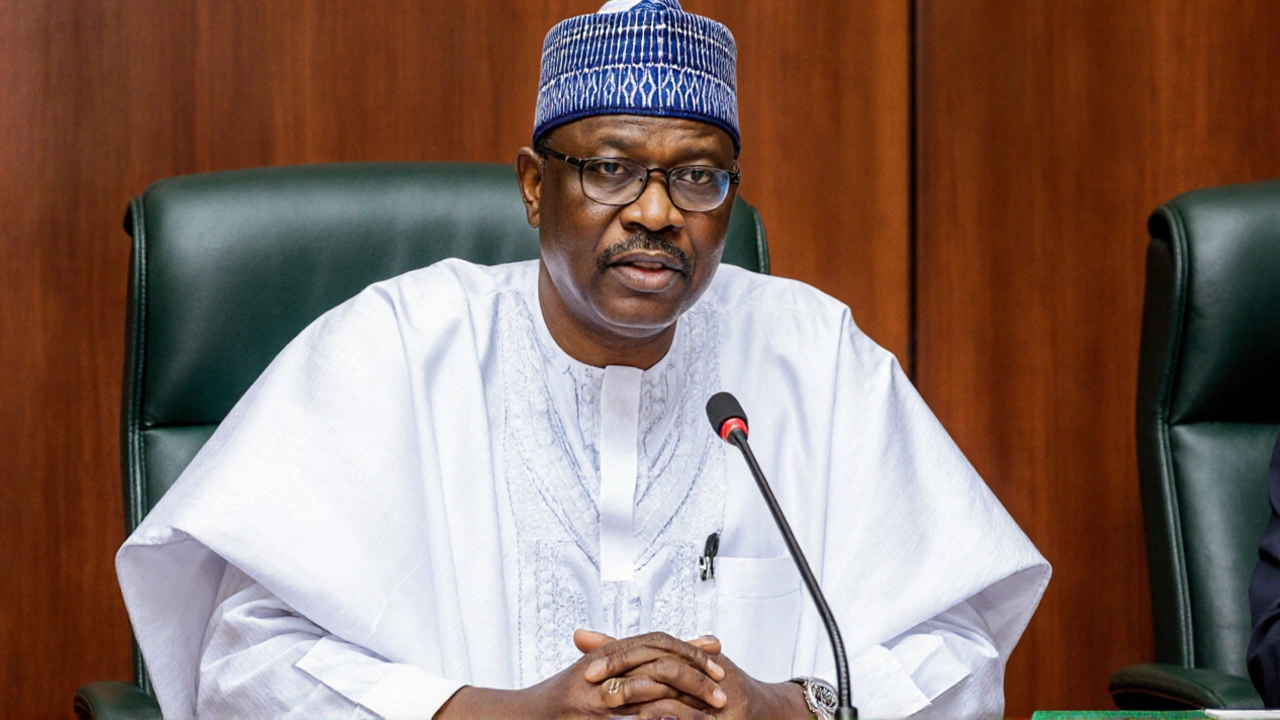INEC Chairman stresses the power of the younger generation
During a packed session at The Gambia's Civil Service University, Professor Mahmood Yakubu, the head of Nigeria's Independent National Electoral Commission, told a room of students that the future of elections on the continent hinges on their shoulders. Speaking to a crowd of International Affairs, Diplomacy and Peace & Conflict Studies majors, he painted a vivid picture: if the next generation steps up, elections can be more transparent, calmer, and trusted.
"Young people must be at the forefront of peaceful electoral engagement," Yakubu said, highlighting that youths now make up the bulk of both registered voters and the temporary staff that keep polling stations running. He argued that without their energy and honesty, even the best‑designed electoral frameworks can stumble.

The biggest threat: misinformation and careless reporting
One of the most striking parts of Yakubu's address was his warning about the "merchant" culture of fake news. He reminded the audience that many African elections have been derailed by rumors spread on WhatsApp, Facebook, and Twitter, turning peaceful rallies into heated confrontations.
"If it's not verified, don't share it," he urged, calling on students to act as citizen journalists who verify facts before posting. The chairman stressed that during crucial phases—like voter registration or result collation—any unverified claim can spark panic and undermine confidence.
He also appealed directly to those studying African youth engagement, asking them to become ambassadors of truth in their communities, campuses, and online circles.
Beyond the tech angle, Yakubu spoke about the moral duty that comes with voting. He said that participating in elections isn't just a right; it's a civic ritual that demands honesty, patience, and respect for opponents. By showing up at registration centres, helping tally votes, or simply encouraging friends to vote, young people can set a standard that older generations will feel pressured to follow.
Yakubu's visit to The Gambia is part of a wider regional push to strengthen democratic institutions across West Africa. Recent elections in neighboring countries have shown how quickly confidence can erode when youth are sidelined or when misinformation spreads unchecked. By positioning youths at the centre of the solution, the INEC hopes to inspire similar outreach programmes in Senegal, Sierra Leone, and beyond.
In a final, upbeat note, the chairman reminded the audience that democracy is a living system—one that needs constant care. "We must all nurture it, defend it, and improve it," he said, adding that each young African has a role to play in deepening democratic values, whether by volunteering at a polling station, conducting voter education workshops, or simply refusing to share unverified stories.

18 Comments
It's heartening to see officials actually giving us the mic. Young people have been told to stay quiet for too long, and now we're being asked to step up. If we take this seriously, we could push for cleaner ballots and less drama on election day.
Honestly, the misinformation problem feels like a virus that spreads faster than any campaign. We need to be the ones who fact‑check before hitting that share button, especially on WhatsApp groups where rumors multiply.
The emphasis on civic duty resonates deeply with me. When we treat voting as a ritual rather than a right, we embed honesty into the process. Moreover, volunteering at polling stations offers practical insight into the mechanics of democracy. I hope universities incorporate these experiences into curricula.
My dear friends, let us remember that elections are not theatre, but the stage upon which our future is performed.
Wow, the sheer amount of fake news out there is staggering, and it’s not just a problem for the West-Africa feels it too, so we must all act, verify, and then share responsibly, because one unchecked rumor can ignite a whole cascade of distrust.
Totally agree, truth matters.
Look, if you keep spewing buzzwords without concrete action, it’s just noise. You need to mobilize grassroots networks, deploy real‑time fact‑checking bots, and create a feedback loop where youths can flag false narratives before they go viral.
Oh sure, because deploying bots is sooo easy, right? Just slap some code on a server and watch the magic happen, no need for actual human effort.
The chairman's call for youth participation underscores a broader shift toward inclusive governance. When young citizens occupy both the voter rolls and the staffing tables, the electoral ecosystem becomes more resilient. This synergy can deter manipulation and foster transparency.
One could argue that the obsession with “youth leadership” is merely a veneer, a way for the establishment to offload responsibility while maintaining control. The narrative conveniently ignores the systemic issues that persist regardless of age. Nonetheless, if younger voices truly engage, perhaps they can illuminate hidden flaws.
While I appreciate the skepticism, dismissing the entire youth movement as a façade undermines the genuine enthusiasm bubbling across campuses. First, consider the sheer numbers: a majority of registered voters in many African nations are under thirty, which means any democratic initiative must reckon with this demographic. Second, the energy that young volunteers bring to polling stations translates into faster processing times and fewer bottlenecks during peak hours. Third, digital natives are naturally adept at navigating social media platforms, making them invaluable assets in combating misinformation. Fourth, peer‑to‑peer education campaigns have repeatedly shown higher retention rates than top‑down government messages. Fifth, when youths are entrusted with responsibilities, they develop a sense of ownership that deters apathy in later elections. Sixth, the presence of youthful staff can act as a deterrent against intimidation, as older officials may hesitate to exert undue pressure. Seventh, collaborative workshops that involve students and election officials have already yielded practical tools, such as simplified voter‑registration guides. Eighth, the very act of volunteering demystifies the electoral process, reducing fear and suspicion among the broader populace. Ninth, numerous case studies from West Africa illustrate that regions with higher youth engagement report increased voter turnout. Tenth, the ripple effect extends beyond the ballot box; civic participation fosters community solidarity. Eleventh, by encouraging transparent reporting, youth journalists can hold authorities accountable in real time. Twelfth, the moral imperative of voting, as highlighted by the chairman, aligns with universal principles of fairness and justice. Thirteenth, when young people refuse to share unverified stories, they set a standard that can permeate all age groups. Fourteenth, sustained mentorship programs can bridge the gap between seasoned officials and newcomers, ensuring knowledge transfer. Finally, if we collectively nurture this momentum, democracy becomes a living, breathing organism rather than a static institution.
I’ve seen friends get caught up in rumor chains, and it really does damage trust. Sharing verified information, even if it’s a bit boring, protects the whole community. Let’s keep each other honest.
Love the call to action 😊. Volunteering at a polling station is a great way to meet people and see democracy in action.
Honestly, the whole “youth as saviors” trope feels like a Hollywood script, but hey, if it spices up the narrative, why not? Meanwhile, the real challenge lies in dismantling entrenched patronage networks that won’t budge for a catchy slogan.
Another lecture on civic duty, how original.
Sure, the theory is elegant, but execution always hits the messy reality 😒.
Alright folks, stop scrolling and start doing! Grab a volunteer badge, hit the registration centers, and show up on election day. Your energy can outshine any cynic out there, and together we’ll build a smoother, calmer voting experience. Let’s prove that the next generation can actually deliver.
Yeah, because nothing says “peaceful elections” like a bunch of eager interns with coffee‑stained shirts.